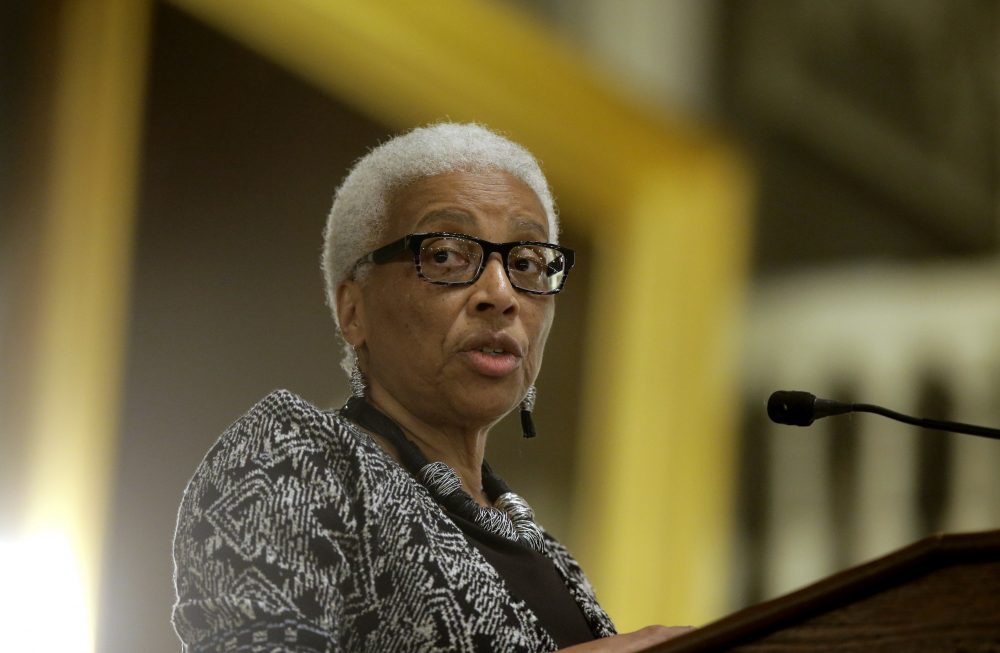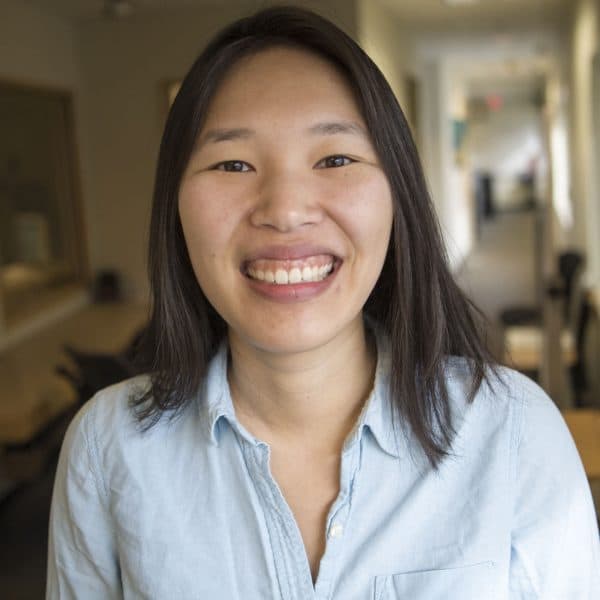Advertisement
Justice Geraldine Hines Retires From State's Highest Court

The first African-American woman on the state's highest court has retired.
On Friday, Justice Geraldine Hines stepped down from the Massachusetts Supreme Judicial Court. She was appointed by former Gov. Deval Patrick in 2014. Originally from Mississippi, Hines was just one of four black students in the University of Wisconsin Law School's Class of 1971.
In Massachusetts, Hines is known for her judicial opinion on Commonwealth v. Warren. Writing for a unanimous court, Hines cited the disproportionate number of police stops faced by minorities in Boston. And because of that, she indicated that black men who try to avoid an encounter with Boston police by fleeing may have a legitimate reason to do so.
We sat down with Justice Hines to talk about her legacy.
Guest
Justice Geraldine Hines, retired associate justice of the Massachusetts SJC.
Interview Highlights
On going to the counterprotest to the so-called "Free Speech" rally
"I retired on Friday and I thought, what a fitting way to re-engage into the work of anti-racism ... I walked up there [to the Reggie Lewis Center] and saw all the people with the wonderful signs and the atmosphere was electric. I couldn't help myself. I felt like this is where I'm supposed to be.
And I was just delighted to see people that I hadn't seen in years because when you're a judge, you don't have a chance to associate at events and with certain kinds of people. So I was just delighted. And I read some of the criticism of the counterprotest that the problem is that it stifled speech. But I'm not sure that I agree with that."
On the cordoning off of the rally because of public safety concerns
"I was an ACLU person before I went on the bench and I believe in the first amendment and I do think that their message, they have a right to say that and at the same time I think that people who disagree have a right to have their say. And I just don't know that it was possible in the circumstances to get the two groups together so that they could listen to each other.
I have a feeling that if Charlottesville hadn't happened that there would've been more — that's not an excuse, but — I have a feeling that there would've been more of an opportunity for people to talk back to each other."
On Commonwealth v. Warren
"What the decision said was that in thinking about whether or not a person is engaged in criminal conduct, just because a black person in Boston flees from a police officer doesn't mean that that's not necessarily conduct that suggests consciousness of guilt. Because there's all of this overlay, there's all of this history of people being stopped and profiled and it might just as easily be a way to escape an indignity as it is a way to disguise some kind of criminal intent."
On if that ruling indicates a judicial philosophy
"I just don't see myself as having a philosophy. If there's just one, my one guiding light as a jurist has always been what is just? And does the law allow that to happen."
On being an attorney for Commonwealth v. Willie Sanders
"I was not the lead attorney, first of all. But it happened in the [19]70s at a time when Boston was still dealing with a lot of racial tension. Willie Sanders was a black man with no criminal record, very large family, who was charged with raping 8 different women in the Brighton neighborhood of Boston.
What happened to me on a personal level was the judge in that case refused to recognize that I was a part of the defense team. When he wanted to have a conference with the lawyers on the case, he told his clerk to tell me that I couldn't come in. "Tell that girl she can't come in." And so, I was a brand new lawyer then and I was a lot less restrained, let me say, than I came to be later on in my career. And we took care of that. And it worked out for the defendant in the case because we got a new judge who was committed to choosing a fair jury for the case and Willie Sanders was acquitted."
On the cases she feels strongest about during her tenure at the SJC
"I think it's a very collegial court. And for the three years that I was there, there was never a large disagreement about any decision that the court made but I can think of a couple that I'm really proud to have been associated with.
And not being immodest here, but one that I contributed to writing — the decision about where registered sex offenders can live. I think it takes a lot to understand why the law should protect a person's right to be, no matter what crime they've committed. And in that situation we had cities and towns all over the Commonwealth passing ordinances or developing regulations that people who were registered sex offenders can't live within certain places in their towns and when you have a whole lot of towns doing that that means that people aren't able to live anywhere. And that's a very difficult thing to explain to lay people who are understandably concerned about who lives next to them but, you know I'm really proud that our court understood the liberty interests protecting people."
Advertisement
On what she wants her legacy to be
"I hope that it's that I was somebody who committed to justice, equal justice, committed to fairness. And always on the lookout for a way to make that happen within the bounds of the law."
On if it's bittersweet to leave the SJC
"Mostly sweet. Only a little bit bitter. Bitter because all along the way I've made some wonderful friends. I've had a chance to do a lot of the work that I wanted to do.
But sweet in a sense that there's so much going on in the country right now that I feel I should be involved in and obviously can't do that as a judge. In many respects, it feels just like the country that existed in 1971 when I came to Boston as a new lawyer. Jim Crow had only recently been vanquished and now it's almost 50 years later and some of those same issues that got me into the law are begging for attention today. And I'm free to get involved.
The real pressing issue I think is what is happening with voting rights."
On if she feels discouraged, looking at what's happening today
"Of course you're discouraged that after 50 years, you're fighting a battle that you thought you had won. But that's the nature of racism. That's the nature of oppression. It's not ever really defeated I think."
This segment aired on August 23, 2017.

